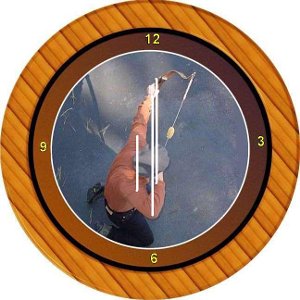To look at your wife's problem from a broader perspective, from what you describe, she has reached a fairly high level of shooting, ending up in the top five in 3D shoots with large turnouts, and also being able to shoot bows in higher poundage ranges than a lot of women (and some men) feel comfortable with. My experience is that when people reach that level, slumps of the kind you describe can be expected. It is a rare person who can be consistently good all the time, regardless of the level of competency. Look at Tiger Woods: he went from unbeatable to barely qualifying to enter, and he can probably go back to unbeatable again, if he wants to bad enough.
So since your wife tends to be a normal person with ups and downs, which also describes my own shooting, her goal should be to be able to understand why they happen. I have learned to identify about five common errors I make repeatedly, and now that I know how to do that, I can correct them as soon as I make them, rather than wasting shot after shot wondering why. What a relief that is!
Arne is correct. Any of us who have been shooting for a while could guess at why she is missing from what you wrote, and if we guess wrong, we could actually be doing more harm that good, because if you try to fix something that ain't broke, usually you end up with two things that are broke rather than one. A good coach like Arne can look at somebody shoot and come up with the right answer most of the time. That is particularly true when a person has reached a high level of proficiency, like your wife has, since she is probably only doing some subtle thing wrong, rather than having to tell some beginner, "well, these are the ten main things you need to work on...."
I'm a little concerned that her increase in bow weight may be causing some of her problems, even though you feel like it may be helping. As Arne says, with good form, a person should be able to control a low poundage bow as well (or better) than a higher poundage bow.





